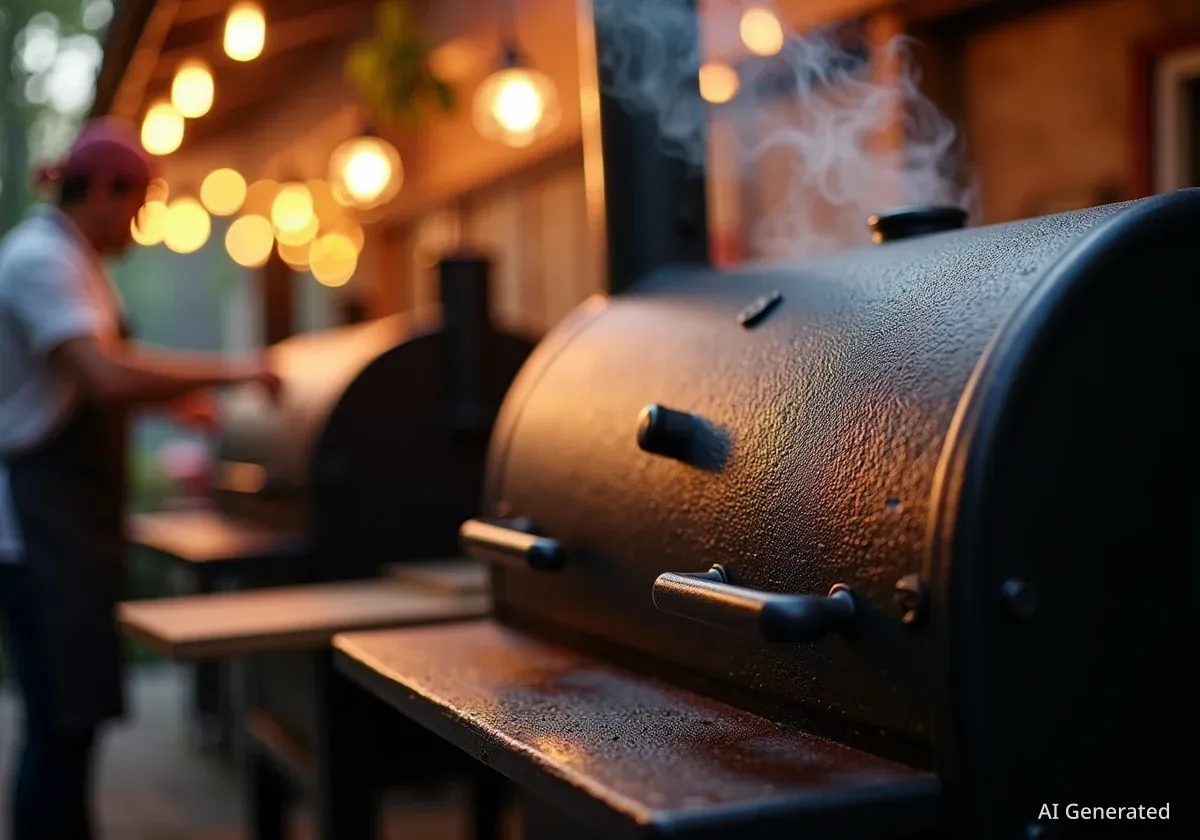A distinct style of barbecue is gaining prominence throughout Texas, attracting a diverse range of food enthusiasts. Halal barbecue, which adheres to Islamic dietary laws, is becoming a notable part of the state's celebrated culinary landscape, with pitmasters blending traditional smoking methods with unique cultural influences.
This growth is fueled by a rising Muslim population and an increasing appreciation for authentic, high-quality smoked meats among the general public. While rooted in specific religious practices, the movement is demonstrating that great barbecue transcends cultural and dietary boundaries.
Key Takeaways
- Halal barbecue adheres to Islamic law, meaning it contains no pork and all other meat is processed according to zabiha standards.
- Texas has become a central hub for this culinary style due to its strong beef culture and significant growth in Muslim communities in cities like Houston and Dallas-Fort Worth.
- The movement is shaped by a diverse mix of pitmasters, including immigrants from the Middle East and Africa, as well as native-born Black Muslims.
- Acceptance among non-Muslim diners is growing, with many establishments reporting that regular customers help educate newcomers about what Halal means.
Understanding Halal Barbecue
For those unfamiliar with the term, Halal barbecue follows specific dietary guidelines prescribed by Islamic tradition. The most fundamental rule is the complete absence of pork, a staple in many other barbecue styles. Beyond this, for meat to be considered Halal, it must be processed in a particular way known as zabiha.
This method is similar in principle to kosher practices in Judaism. It involves a specific, humane method of slaughter that includes a prayer. This ensures the meat is permissible for consumption by Muslims. However, as pitmasters emphasize, the cooking process itself—the smoking, the rubs, the sauces—remains true to the art of barbecue.
What Does "Halal" Mean?
The word "Halal" is an Arabic term that translates to "permissible." In the context of food, it refers to what is allowed under Islamic law. This covers not only the type of meat but also the method of its preparation. The opposite of Halal is "Haram," meaning "forbidden."
The Texas Connection A Perfect Environment for Growth
Texas has proven to be fertile ground for the Halal barbecue movement for several key reasons. The state's deep-rooted love for beef, particularly brisket, aligns perfectly with Halal dietary laws, which permit the consumption of beef. This provides a natural starting point for pitmasters looking to innovate within established traditions.
Furthermore, Texas is home to some of the fastest-growing Muslim populations in the United States, particularly in metropolitan areas like Houston and the Dallas-Fort Worth metroplex. This has created a consistent and growing demand for Halal-certified food options, including classic American fare like barbecue.
Market Recognition
The demand has not gone unnoticed by suppliers. A growing number of smaller meat producers in Texas are now offering Halal-processed products, including premium cuts like Wagyu beef. Brands like Wagyu~X specifically cater to this market, giving pitmasters access to high-quality ingredients to perfect their craft.
Pioneers and Innovators
The scene is populated by pitmasters from various backgrounds, each bringing their own story to the smoker. According to food writer Farhan Mustafa, who has covered the topic for Bon Appetit, many Muslim-American pitmasters draw inspiration from their childhood experiences at community cookouts and mosque events.
"I think it’s holding all those memories and then... how do you bring in your own stories, whether it is the American side of you or the immigrant side of you, right? Both, and that shows up on the plate," Mustafa explained.
This fusion of memory and identity is a driving force behind the unique flavors and styles emerging from Halal smokehouses across the state.
Cultural Fusion on the Menu
While Texas-style brisket is a favorite, Halal barbecue is not a monolithic category. The menus often reflect the diverse origins of the pitmasters themselves. Influences from Middle Eastern, African, and American culinary traditions are common.
One prominent example is Yearby’s BBQ, operated by CJ and Sabrina Henley, who are both Black Muslims. Their story highlights the deep American roots of the movement. CJ grew up in New Orleans and Sabrina in Philadelphia, and their menu reflects this heritage.
- Smoked meatloaf
- Smoked mac and cheese
- Classic barbecue chicken
- Philadelphia-style water ice
As CJ Henley notes, "We’re just serving the same food we grew up with. We just happen to be Muslim." Their approach demonstrates that Halal barbecue is fundamentally American barbecue, made accessible to a specific dietary community.
Educating the Public and Building Bridges
One of the challenges for Halal pitmasters has been educating customers who may be unfamiliar with the term. In the beginning, explaining the concept of Halal was a frequent part of the job. However, this is changing as awareness grows.
Many pitmasters report that the need for explanation has decreased over time. In a sign of growing mainstream acceptance, some find their non-Muslim customers are now the ones explaining the concept to new visitors.
"Their non-Muslim customers are the ones that are explaining what halal means to other new customers," Henley shared, highlighting the community-driven nature of this cultural exchange.
This word-of-mouth education is helping to normalize Halal food, positioning it not as something foreign, but simply as another high-quality option in the vast world of Texas barbecue. The core message from pitmasters is clear: while the preparation follows specific rules, the final product is simply great barbecue, judged on its flavor, tenderness, and smoke.



